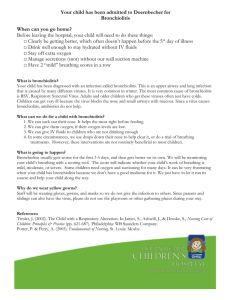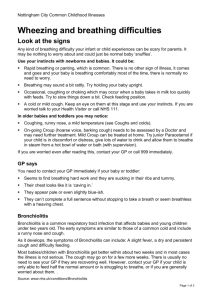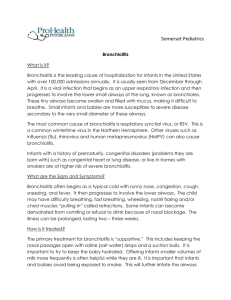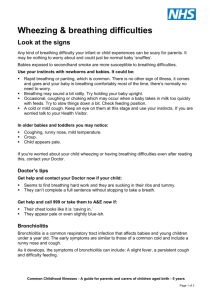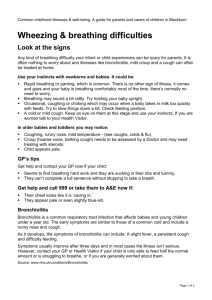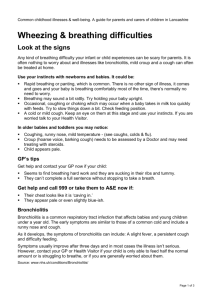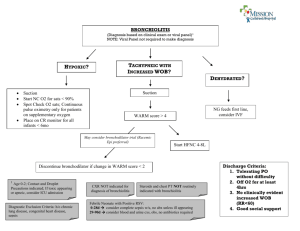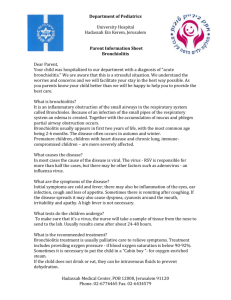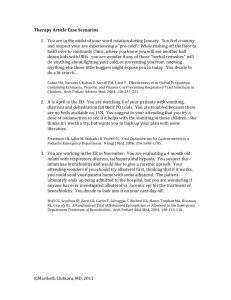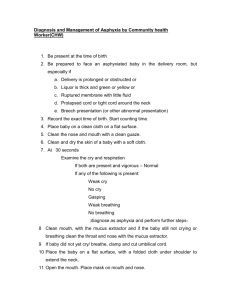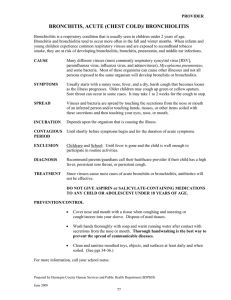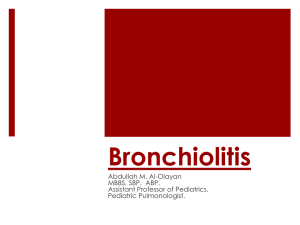Bronchiolitis - The Hadleigh Practice
advertisement
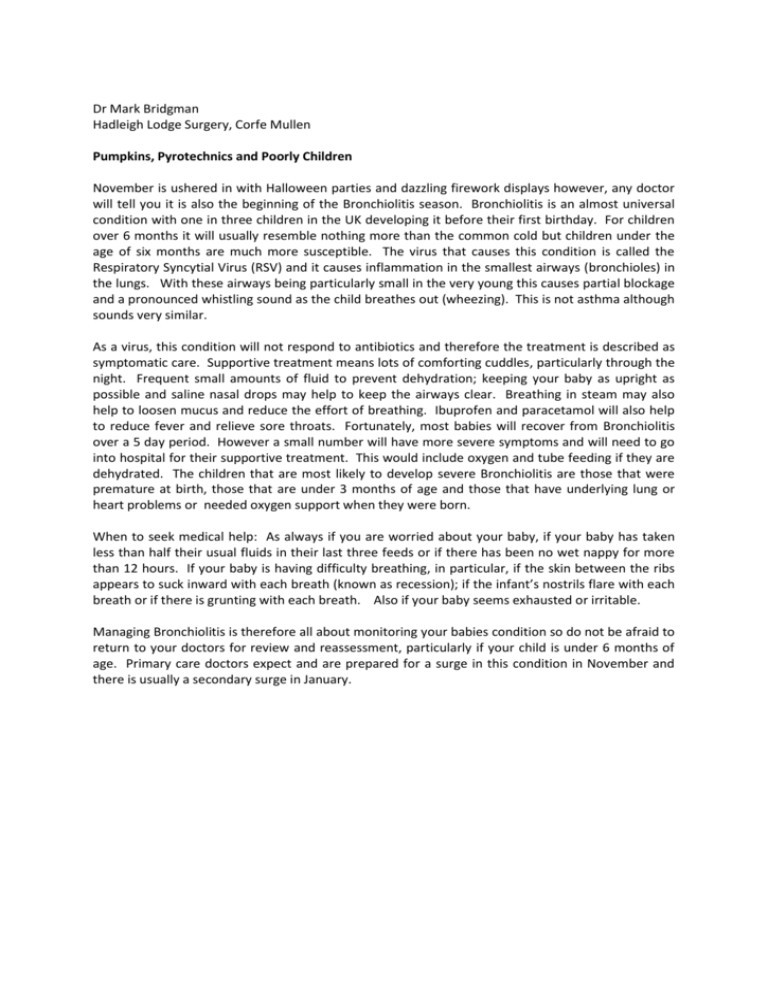
Dr Mark Bridgman Hadleigh Lodge Surgery, Corfe Mullen Pumpkins, Pyrotechnics and Poorly Children November is ushered in with Halloween parties and dazzling firework displays however, any doctor will tell you it is also the beginning of the Bronchiolitis season. Bronchiolitis is an almost universal condition with one in three children in the UK developing it before their first birthday. For children over 6 months it will usually resemble nothing more than the common cold but children under the age of six months are much more susceptible. The virus that causes this condition is called the Respiratory Syncytial Virus (RSV) and it causes inflammation in the smallest airways (bronchioles) in the lungs. With these airways being particularly small in the very young this causes partial blockage and a pronounced whistling sound as the child breathes out (wheezing). This is not asthma although sounds very similar. As a virus, this condition will not respond to antibiotics and therefore the treatment is described as symptomatic care. Supportive treatment means lots of comforting cuddles, particularly through the night. Frequent small amounts of fluid to prevent dehydration; keeping your baby as upright as possible and saline nasal drops may help to keep the airways clear. Breathing in steam may also help to loosen mucus and reduce the effort of breathing. Ibuprofen and paracetamol will also help to reduce fever and relieve sore throats. Fortunately, most babies will recover from Bronchiolitis over a 5 day period. However a small number will have more severe symptoms and will need to go into hospital for their supportive treatment. This would include oxygen and tube feeding if they are dehydrated. The children that are most likely to develop severe Bronchiolitis are those that were premature at birth, those that are under 3 months of age and those that have underlying lung or heart problems or needed oxygen support when they were born. When to seek medical help: As always if you are worried about your baby, if your baby has taken less than half their usual fluids in their last three feeds or if there has been no wet nappy for more than 12 hours. If your baby is having difficulty breathing, in particular, if the skin between the ribs appears to suck inward with each breath (known as recession); if the infant’s nostrils flare with each breath or if there is grunting with each breath. Also if your baby seems exhausted or irritable. Managing Bronchiolitis is therefore all about monitoring your babies condition so do not be afraid to return to your doctors for review and reassessment, particularly if your child is under 6 months of age. Primary care doctors expect and are prepared for a surge in this condition in November and there is usually a secondary surge in January.
